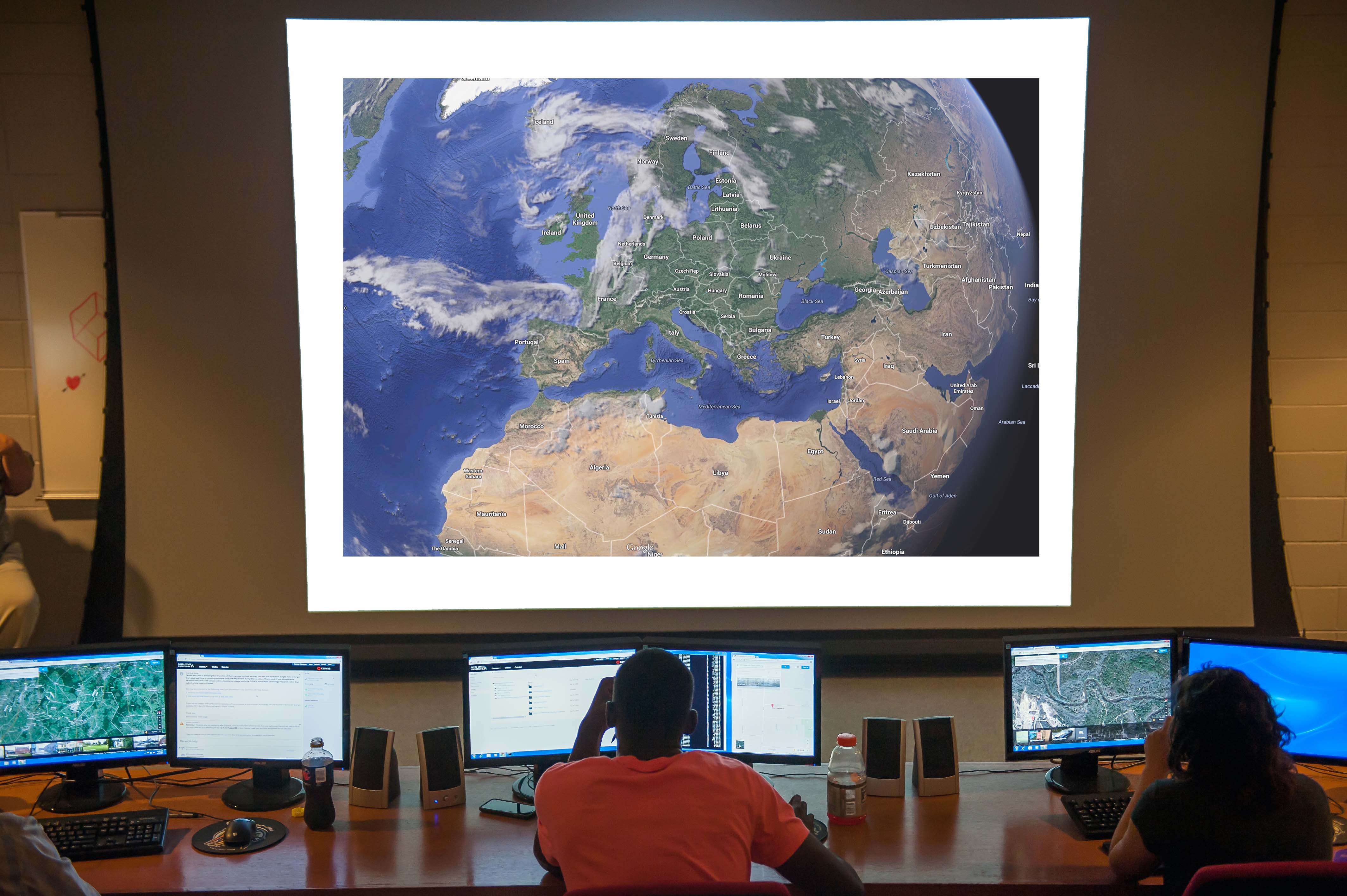 Delta State University's Center for Interdisciplinary Geospatial Information Technologies continues to earn accolades.
Delta State University's Center for Interdisciplinary Geospatial Information Technologies continues to earn accolades.Delta State University recently became the first undergraduate degree program to achieve collegiate accreditation from the United States Geospatial Intelligence Foundation. Singled out for its geospatial analysis and intelligence (GAI) bachelor of applied science (BAS) program, Delta State became the 18th school to receive USGIF accreditation.
The BAS-GAI degree can be earned on-campus or online and is offered through Delta State’s Center for Interdisciplinary Geospatial Information Technologies.
“Accreditation of our degree program signals the formal birth of a new academic discipline: Geospatial Analysis and Intelligence,” said Talbot Brooks, director of Delta State’s Center for Interdisciplinary Geospatial Information Technologies. “GEOINT was bundled up under geography and related disciplines for too long and its emergence as a discipline is overdue. Seeking both regional and professional accreditation was a long and difficult path, but we are glad to be the first and are committed to forever being the best.”
The center works cooperatively with non-profit organizations such as USGIF and industry partners to deliver a curriculum of significant value to employers.
“Our students must complete a challenging liberal arts core, which pushes them to think critically about information,” Brooks said. “Coursework in the major hones critical thinking for use in the GEOINT arena through the development of cutting-edge knowledge, skills, and abilities in GIS, remote sensing, analytic techniques, data management and programming, and visualization.”
Beyond coursework, BAS-GAI students must engage in a full semester of cooperative education, working real-world projects with program partners such as the National Geospatial-Intelligence Agency (NGA), Hexagon Federal, and USDA-NRCS.
The center is one of Delta State’s signature programs because it has a long track record of excellence. Chosen as a Center of National Excellence in the Geosciences by NGA and the U.S. Geological Survey, the center is also a partner of the U.S. military and emergency response communities. Its faculty serve on the National Geospatial Advisory Committee and as technical advisors to the United Nations and have served as members of the National Academy of Science. The center recently became the 23rd Regional Support Office of the United Nations Platform for Space-Based Disaster Management and Emergency Response.
“Despite the institution’s rural location, its GEOINT program has capitalized on outreach efforts to build hybrid programs in which students work on real-world projects,” said USGIF Vice President of Academic Affairs Dr. Camelia Kantor. “Delta State is a hidden gem that has earned its seat alongside an elite group of GEOINT programs. The university’s success is attributed to strong leadership and a solid curriculum matched to USGIF’s GEOINT Essential Body of Knowledge.”
To learn more about USGIF’s Collegiate Accreditation program, visit usgif.org/education/accreditation.


